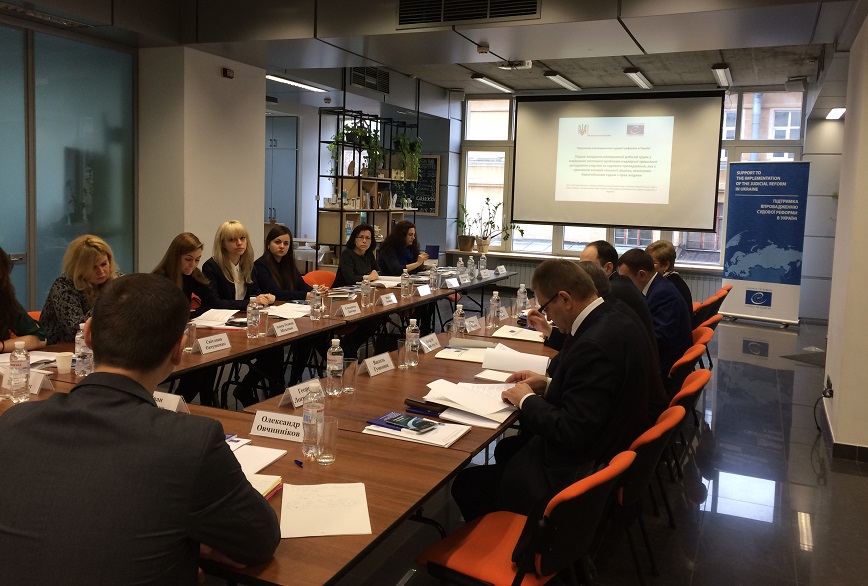On 23 March 2017, the first meeting of the inter-agency working group for developing solutions to the systemic problem of excessive length of pretrial and judiciary proceedings was held in Kyiv, Ukraine. The event was organized by the Council of Europe project “Support to the implementation of the judicial reform in Ukraine” jointly with the Government Agent of Ukraine before the European Court of Human Rights.
The inter-agency working group was established by an Order of the Minister of Justice of Ukraine, with the aim to develop solutions concerning the problem of excessive length of civil and criminal proceedings in Ukraine. Another important task of the working group is to draft proposals on implementation of effective remedies in Ukraine, in compliance with Article 13 of the Convention for the protection of human rights and fundamental freedoms. The inter-agency working group consists of representatives of the legislative, executive and judicial branches of power of Ukraine, as well as of civil society representatives.
Mr Oleksandr Ovchynnykov, the international expert of the Council of Europe, was invited to participate in the meeting of the working group. Mr Ovchynnykov informed the participants on the Council of Europe standards and recommendations, as well as the best practices, of introducing effective remedies for lengthy judicial proceedings.

).
Following the discussion, members of the inter-agency working group agreed upon the algorithm of further actions so as to develop suggestions on legislative amendments and measures aimed at improving judicial and administrative practices so as to ensure reasonable length of judicial proceedings in Ukraine.
For reference: A person’s right to trial within a reasonable time is guaranteed by Article 6 of the Convention for the Protection of Human Rights and Fundamental Freedoms (the Convention). In addition, Article 13 of the Convention guarantees the availability at a national level of efficient preventive and compensatory remedies, which requires, inter alia, the establishment of a judicial system capable of ensuring a reasonable length of proceedings in practice.
In 2004, the European Court of Human Rights adopted quasi-pilot judgments in the cases of Svitlana Naumenko v. Ukraine and Merit v. Ukraine, in which it referred to the existence of systemic problems resulting in the violation of a person’s rights to a reasonable length of civil and criminal proceedings, respectively, as well as the lack of efficient remedies at the national level.
According to the information published on the official website of the European Court of Human Rights, as of 30 September 2016, about 18.5 thousand applications in the cases against Ukraine were pending before the European Court of Human Rights. Of these, about 200 to 300 applications concerned excessive length of judicial proceedings.
The Council of Europe project “Support to the implementation of the judicial reform in Ukraine” is funded by a contribution from the Government of the United Kingdom of Great Britain and Northern Ireland. It aims at ensuring further compliance of the Ukrainian system of judiciary with the standards and recommendations of the Council of Europe.






